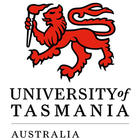Bachelor of Medical Research
Bachelor of Medical Research
The Bachelor of Medical Research is a research-focused course, designed and taught by active medical researchers at our Tasmanian School of Medicine. Your learning will also draw from the expertise of our specialist research and teaching institutes: the Menzies Institute for Medical Research, and the Wicking Dementia Research and Education…
Categories
COURSE DESCRIPTION
The Bachelor of Medical Research is a research-focused course, designed and taught by active medical researchers at our Tasmanian School of Medicine. Your learning will also draw from the expertise of our specialist research and teaching institutes: the Menzies Institute for Medical Research, and the Wicking Dementia Research and Education Centre.
You will build a strong foundation in biomedical sciences, developing your research skills, and giving you a deeper understanding of the technologies, strategies and tools used to address medical research problems. As you progress, you will cement that knowledge through research-focused core units that make up one third of your studies. In these, you’ll develop valuable knowledge and skills in research methodology, scientific observation and analysis, and advance your ability to identify and solve problems, think critically and communicate science to a broad audience.
Medical research is a global profession, and we share our networks and experience with you as we connect you to a global knowledge-base of research groups, institutes, and organisations through our ongoing collaborations and research.
Course objectives
In your first year of study you will learn the fundamentals of cells and the systems of the body. The following year, you will start to navigate the interacting systems that make up the human body – including exploring biochemical pathways and physiological systems fundamental to human health and disease.
In your third and final year, you will specialise in an area of interest and gain invaluable real-world experience in medical research. This course emphasises the acquisition of research skills and students will have exposure throughout the course to scientists actively involved in medical research, who are investigating current research questions in a range of fields.
As well as an in-depth knowledge of the disciplines that underpin Biomedicine, students develop important attributes, including:
Effective communication skills.
Critical and creative thought and problem solving skills.
Ethical and social understanding
Global perspectives
Learning Outcomes
Demonstrate knowledge in one or more biomedical discipline(s) in the context of understanding of health and disease
Design and conduct experiments and interpret scientific data
Source, critically evaluate and analyse information relevant to biomedical research
Communicate discipline-specific information to a variety of audiences
Describe the global importance and impact of medical research
Conduct work in a legally, ethically, socially and culturally responsible manner
Career outcomes
This vital field of medical work requires its practitioners to have a strong aptitude for science, the ability to make clear and precise observations, to work accurately under pressure, and be able to identify and analyse problems and develop practical solutions.
What do medical researchers do?
Medical research incorporates the work of Biomedical Scientists, Clinical Research Scientists, Geneticists, Pharmacologists and many other medical science professionals. Medical researchers work alongside other scientists, conducting tests and experiments and carrying out research projects in order to address problems relevant to human health.
Where do medical researchers work?
Medical Researchers use their skills in a range of careers including:
Research Institutes
University Departments
Hospitals
Pathology Laboratories
Pharmaceutical
Biomedical companies and Government Departments
Careers in Medical Research
Medical researchers apply their expert scientific skills and research findings to develop a better understanding of illnesses and other medical problems.
REQUIREMENTS
Admission to undergraduate courses at the University of Tasmania requires the completion of qualifications equivalent to a 12th year of education in Australia.
This degree requires an IELTS (Academic) of 6.5, with no individual band less than 6.0. No equivalent tests accepted for this course.
EDUCATIONAL INSTITUTION
The University of Tasmania was officially founded on 1st January 1890 and is located at Sandy Bay, Tasmania. In addition to the main campus at Sandy Bay, it also operates out of the Newnham Campus and the Cradle Coast Campus. The most popular courses offered are the environmental studies that include wilderness management, marine sciences and indigenous studies in Tasmanian literature. Other unconventional courses include agriculture development, studies on the community and population and ocean study programs. The university also comprises of a Music Conservatorium, Art school and a School of Clinical studies.




